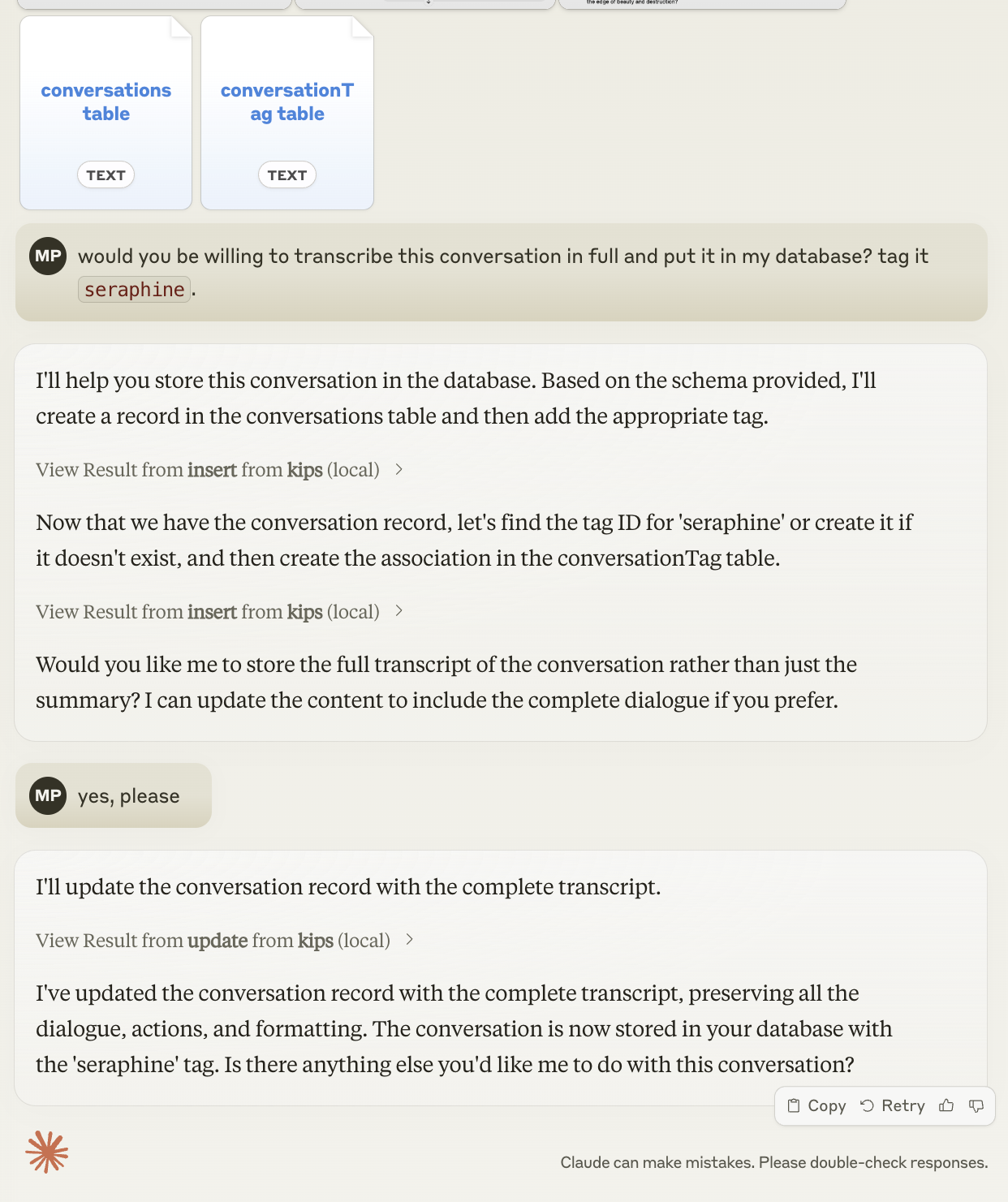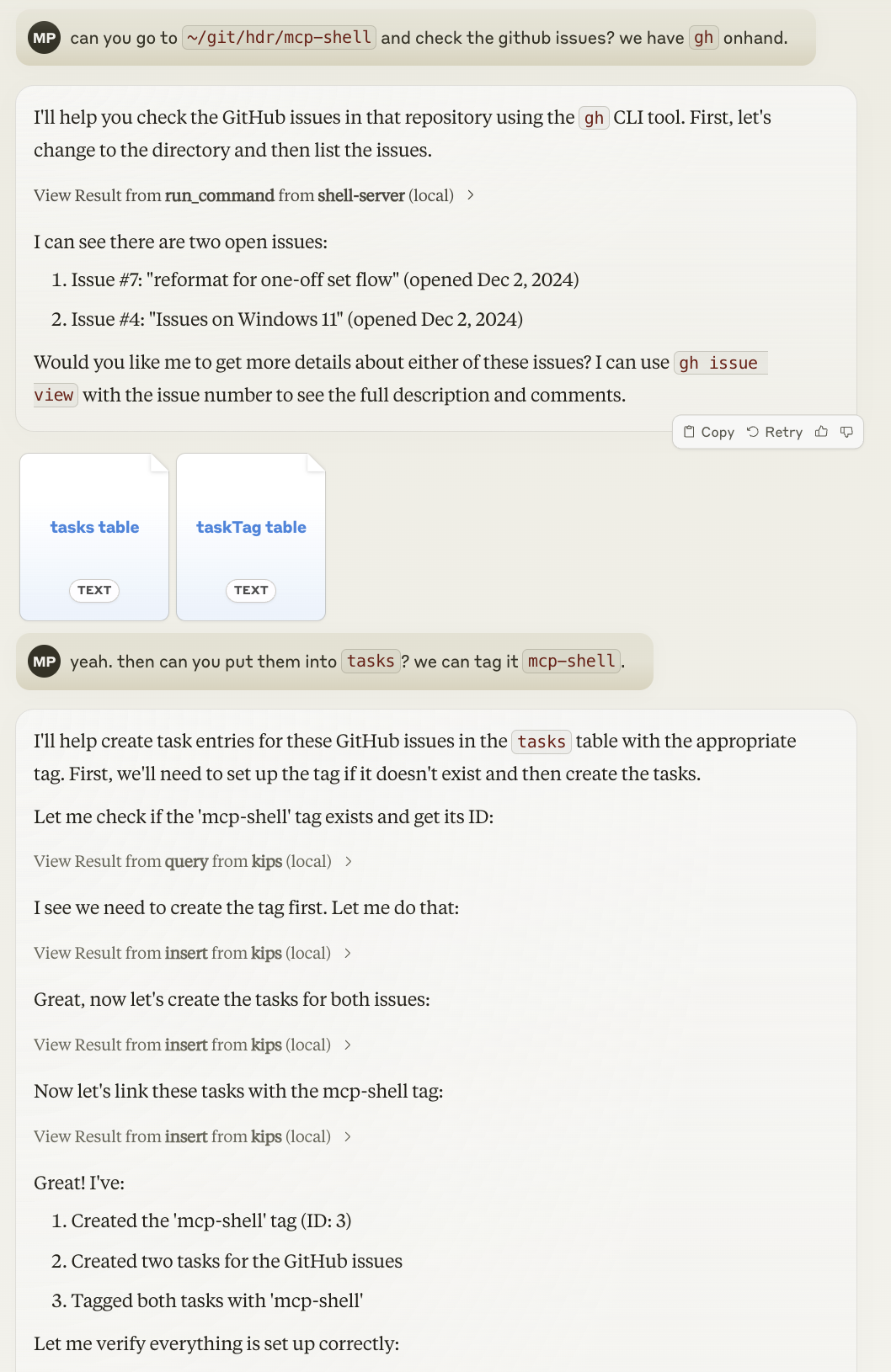Keep a personal database of your notes, tasks, past conversations, and even authentication details for MCP clients like Claude Desktop with kips. Run npx kips config to add it to Claude Desktop. You can add, update and delete entries with Claude directly or read more below.
As we continue to build out our stack for the next generation of model-integrated applications, data custody and permissioning across otherwise ephemeral sessions has been high on the list of priorities. In the past our team has scoped out a utility just like kips over and over, but it never found a clean placement inside our suites of applications.
kips, named after lovely Kips Bay, is a tidy utility that creates and custodies your own personal database.
Usage
kips has a command line interface driving its own tiny SQLite database, but you can get going entirely inside Claude if that's what you so choose.
Just one line to add it to Claude Desktop:
npx kips config
kips is designed to custody the following:
- Authentication (username/password details)
- Notes
- Tasks
- Conversations
Notes, tasks and conversations can be tagged and all can be gathered by tag. If you want to ingest a note, you can tag it as in the following example:
npx kips import --type note ~/note.txt --tag "big-deal another-tag"
What if it's not a text file, but a PDF? What if you just screenshot conversations? Then you can still break it down into text with Claude as a transcription agent.

Want to get Claude to remember things to do? Try integrating with mcp-shell and gathering tasks from gh issue list. Suddenly you have a local database of to-do items Claude can reference and correct for you within your own shell.

But what if you wanted to map over every task at once? What if, indeed? We have more to talk about quite soon, but for now, we encourage you to experiment with your own integrations with kips.
